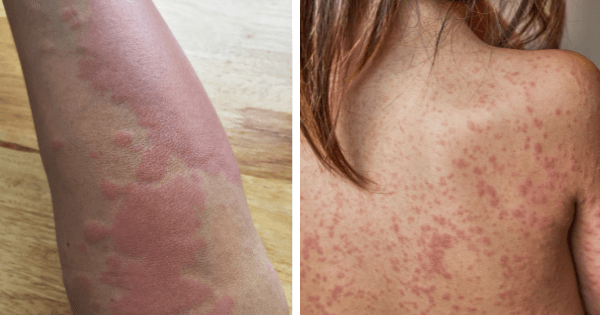Most of us think of skin as a cosmetic concern. We apply creams, treat blemishes, and focus on appearance. But your skin is also your largest organ and an early warning system for what’s going on inside your body. Certain spots, patches, or changes aren’t just surface problems — they may be signals of underlying health issues. Recognizing them early can make a big difference.
1. Dark Spots That Appear Suddenly
If you notice new or spreading dark spots, especially on areas normally hidden from the sun, it could be a sign of adrenal insufficiency (Addison’s disease). People with this condition may also feel weak, lose weight unintentionally, or have low blood pressure and blood sugar. While dark spots are not always serious, it’s worth mentioning them to your doctor.
2. Unexplained White Patches
White patches or “milk spots” on your skin may be vitiligo, a condition in which pigment cells (melanocytes) stop producing color. Vitiligo is not dangerous, but it may sometimes be linked with other health issues. A dermatologist or endocrinologist can confirm the diagnosis and discuss treatment options to slow or even improve pigmentation changes.
3. Rashes That Don’t Go Away
Rashes are common and usually harmless. But when a rash is widespread, painful, or persistent, it may signal an allergy, a reaction to medication, or an infection like chickenpox. In rare cases, severe rashes can point to more serious conditions such as Stevens-Johnson Syndrome or Lyell’s Syndrome, which require immediate medical attention. Adults who develop chickenpox should also see a doctor promptly.
4. Frequent Swelling (Edema)
Waking up with puffy hands, feet, or eyelids day after day? Persistent swelling can sometimes be related to hypothyroidism — a thyroid gland that isn’t producing enough hormones. This condition may also cause dry skin, hair thinning, and unexplained weight gain. A blood test ordered by an endocrinologist can quickly check your thyroid levels.
5. New or Changing Moles
Most moles are harmless birthmarks, but rapid changes in shape, color, or size can be an early sign of melanoma or other skin issues. Look for the “ABCDE” warning signs (asymmetry, border, color, diameter, evolving). If anything looks unusual, schedule a skin exam with a healthcare professional.
6. Acne Beyond the Teenage Years
Breakouts are not just for teens. Adult acne can be triggered by hormonal fluctuations, stress, or digestive imbalances. While over-the-counter treatments can help, a dermatologist can offer tailored solutions and rule out underlying causes.
7. Persistent Skin Flaking
Occasional dryness is normal, especially in winter. But ongoing flaking or peeling can result from allergies, vitamin deficiencies, or hormonal issues. In some cases, it may be a sign of an underlying illness such as psoriasis or eczema. If home moisturizers aren’t working, get a professional opinion.
8. Excessive Sweating Without Reason
Do you sweat profusely even when you’re not exercising or it isn’t hot? Excessive sweating may be linked to thyroid problems such as Graves’ disease. This autoimmune condition can also make skin thinner and more sensitive. If you suspect a thyroid issue, a doctor can arrange simple tests.
Why Paying Attention Matters
Your skin is your body’s “first messenger.” By noticing and acting on unusual changes, you can catch potential problems early, when they’re easiest to manage. Even if a symptom turns out to be harmless, the peace of mind from a professional check-up is worth it.



